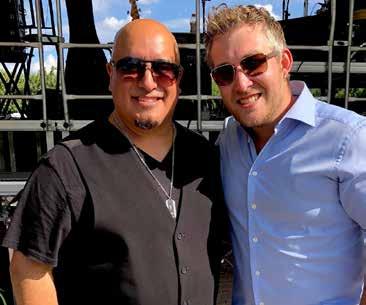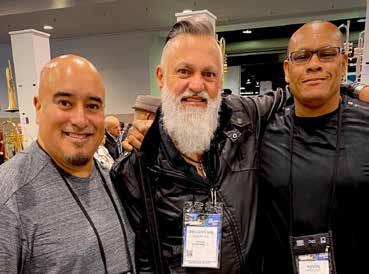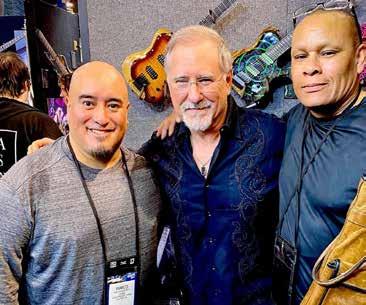
7 minute read
Interview with Marco Montoya
Marco Montoya
Advertisement
Q&A
Q: What’s your deliberation process for selection of what track will make the cut on your CD? (How do you determine if a track is going to make the CD?)
A: To me, every track that makes the CD must be a radio friendly track. This sets a bar right out of the gate. Radio friendly meaning the quality, feel, flow & catchiness have to be at a certain level. I listen to many different genres of music and have found that a great hook along with something that catches your attention within the first 10 seconds are absolutely vital to catching a listener’s attention. If I see a track we are working doesn’t have those elements, then it either needs to be dumped, reworked or as Kevin & I say “taken through the shop” for some restructuring, or even to get a total & complete makeover.
Q: How important it is to pass the musical baton to the next generation?
A: Passing the musical baton to the next generation is extremely important. I think the lack of this might be contributing to some of the dying genre’s out there. For example, I played Salsa music for many years and 97% of the musicians I performed with in the Salsa scene were in their 40’s & up. It’s like the younger generation isn’t really interested in Salsa even though it is loved worldwide. Smooth Jazz is another genre in a similar situation. The cool part is there are plenty of newer artists out there interested in the genre that keep it moving along with the great pioneers that are still relevant. That said, its audience is an older generation for the most part & I think that’s why we’ve seen a decline in radio stations over time compared to what we saw in the 90’s. Passing on that musical baton is vital to keeping dying genres alive, even if the next generation adds a modern twist to an already existing great sound of the fusion of genres we have come to know as Smooth Jazz.
Q. What would you tell an inexperienced musician on his way to the top?
A. That creating a top-quality album is only the beginning. That as an independent artist, marketing and promotion are equally as important as creating an album. They take the same time, effort & yes financial investment. Back to the music, I think it’s super important not to skimp out on anything along the road to quality, from instrumentation, producing to the tracking & especially the mixing & mastering.
Q: Let’s take a page from the movie back to the future, if you go back and pull a musician from another›s era who would that be and why?




are so many great Jazz pianists out there, Bill Evans, Thelonius Monk, Duke Ellington, Oscar Peterson, and many more & they are all great, but the first time I heard Art Tatum I was completely blown away. I would love to see his piano playing up close and in person and make him play some of those crazy runs in super slow motion for me, lol! He was an amazing pianist & every time I hear his music I just enjoy listening to his insane talent, knowing what kind of discipline & expertise it takes to pull off what he does.
Q: What’s the most important lesson you have learned from working with and collaborating with other artists?
A: The most important lesson I’ve learned about collaborating with other artists is that if they really like a track you’ve created, you are going to get them to pour their heart into what they end up tracking. That means you don’t just send any track over to an artist you want to collaborate with. It gets back to having something of quality, something catchy, something that they can really feel because the more they can feel that track, the more you are going to get out of them. For example, when we received “Montgomery Station” back from Eric Marienthal, he sent us 3 great passes and we had the hardest time trying to decide which take would make the final cut because they were all above and beyond! Kevin likes to call this “problems you love to have.” Q: You’ve accomplished a lot in your music journey what are you most proud of?
A: I think up until now I am most proud of the album that Kevin & I have put together with “Let’s Ride”. I never imagined that some of the guest artists on this album would have ever playing on music that I had been a part of writing & creating. One thing that I really appreciate is the talent Kevin brings to The Smooth Jazz Alley. Yes, he is a drummer, however most people don’t even know the ear this guy has & how much attention to detail he has in music from a producer perspective. You would never know unless you sat with him in the studio to dissect a track. Kevin & I not only think alike,
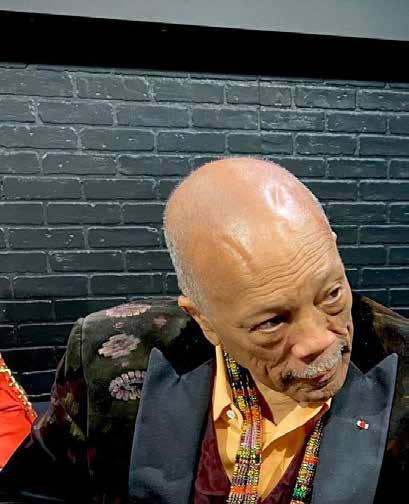
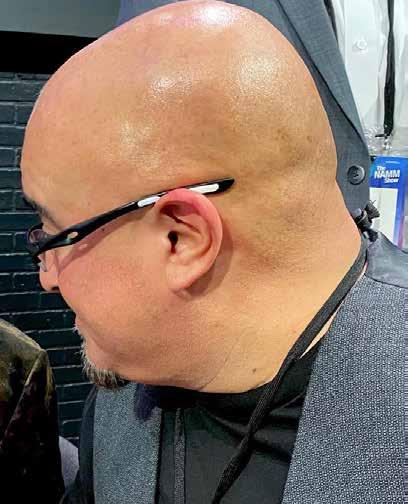
we listen for the same things in music also which makes a huge difference when you’re working with someone in the studio. I haven’t found too many people that can think of details on a track that I haven’t already thought of & that’s what Kevin brings. This album is the result of that dynamic & to have the guest artists that Kevin brought in, well that just puts it over the top of an accomplishment that I am super proud of. Making the first-round ballot for a Grammy consideration in Contemporary Instrumental this past October was just a bonus!
Q: You’re a world class musician what impresses you most about a successful musician? A: What impresses me the most about a successful musician is the detail they put into their craft, along with how knowledgeable they are about music in general, not specifically just the instrument they play. I think a successful musician can hear everything going on in a song & take all the detail of the song into consideration in how they insert their talent into the mix.
Q:What would your family say is your best quality?
A: Okay here is one of those Ms. Bridgette curveball questions…I knew one was coming, lol! Well I think my family would say my best quality would be the ability to push through trials that come at me while I’m on my way to taking care of business or working toward a goal & not giving up when there is a setback. If that’s what they would say, then I would attribute that all to the Lord who gives me the ability & strength to do that.
Q: How important is continuing education in this music business?
A: I think continuing education is super important, especially in the world we are in where technology is constantly changing & evolving. I mean there is new gear coming out every year, not to mention new computers, phones, etc. That said, continuing education in your instrument is a constant,
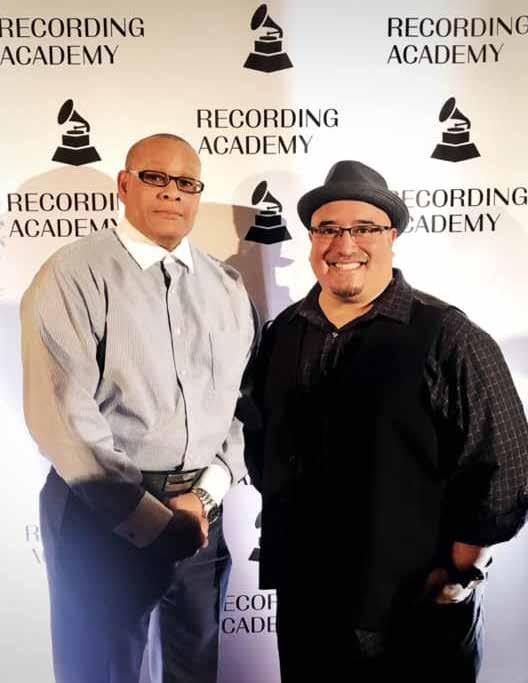
whether it be learning what you can from other musicians, networking/collaborating with other artists to see how they are doing things, etc. I know that just in recording, there are endless techniques, new software constantly coming out, old software getting updated features, I mean it’s a constant evolution on multiple fronts. That’s not even including marketing, social media and other trends that independent artists have to be on top of constantly.
Q: What has music taught you?
A : Music has taught me how to be creative, how to express myself, how to take multiple approaches towards a common goal, and how to just be free to be me. Music has taught me it adapts to my moods, whether I’m irritated, happy, sad, excited, depressed or whether I just feel like meditating. Music has shown me how to catalog my life, take me back to when I was a child, remembering good times, good experiences & bad. Music reminds me of love & passion, but most of all hope. Hope of something good coming into your future. It’s like when Friday arrives & you can’t wait to see what new releases come out that week. You know there will be a mixed bag of stuff, but the unexpected surprise of a great song that stands out & catches your attention, now that’s something! A song that just makes you feel good. That track you click and drag into your library that you’re going to keep on repeat. I relate it to the hope that God is going to bring you a great unknown blessing when you least expect it, yes, even in a world filled with a bunch of “stuff.”
